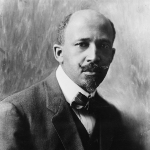Background
Herbert Aptheker was born on July 31, 1915, in Brooklyn, New York, the United States to a wealthy Jewish family of Benjamin and Rebecca (Komar) Aptheker. He was the youngest of five children.


1130 Amsterdam Ave, New York, NY 10027, USA.
After high school, Herbert might have become a student of Columbia College. However, by bad chance, he went to study at Seth Low Junior College for two years. At long last, in 1935 Herbert managed to enroll at Columbia College. There he received a Bachelor of Science degree that was followed by the higher-status Bachelor of Arts in 1936, a Master's degree in 1937, and a Doctor of Philosophy in 1943.
1966
Herbert Aptheker in front of Silent Sam.
1973
New Africa House on the UMass Amherst campus
Herbert Aptheker signing paper transferring W. E. B. Du Bois papers to the University of Massachusetts.
911 Flatbush Ave, Brooklyn, NY 11226, USA.
Herbert Aptheker attended Erasmus Hall high school and graduated from there in 1933.
1130 Amsterdam Ave, New York, NY 10027, USA.
After high school, Herbert might have become a student of Columbia College. However, by bad chance, he went to study at Seth Low Junior College for two years. At long last, in 1935 Herbert managed to enroll at Columbia College. There he received a Bachelor of Science degree that was followed by the higher-status Bachelor of Arts in 1936, a Master's degree in 1937, and a Doctor of Philosophy in 1943.
99 Avenue P, Brooklyn, NY 11204, USA.
Herbert attended Seth Low Junior College.
Famous Marxist scholar/activist parents Fay and Herbert Aptheker with their newborn Bettina.
Universitätsplatz 10, 06108 Halle (Saale), Germany.
When Aptheker was already at a considerable age, he received another Doctor of Philosophy studying at Martin Luther University.











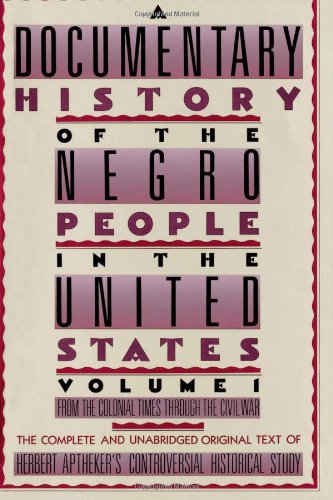
(This first volume presents material from 1861 until the c...)
This first volume presents material from 1861 until the conclusion of the Civil War. The source and historical significance of each document are explained in the editor's remarks and notes.
http://www.amazon.com/gp/product/0806501685/?tag=2022091-20
1960
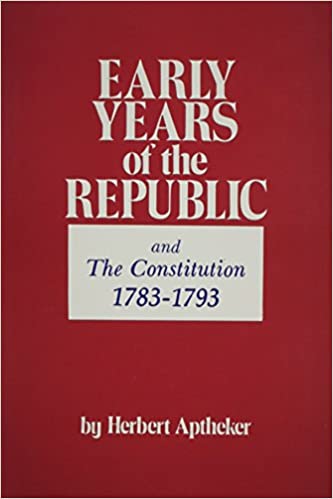
(The Marxist historian traces the course of events from th...)
The Marxist historian traces the course of events from the ratification of the Articles of Confederation to the end of Washington's first term as President.
https://www.amazon.com/Early-Years-Republic-Revolution-administration/dp/0717804712/ref=sr_1_14?dchild=1&keywords=Herbert+Aptheker&qid=1593601360&s=books&sr=1-14
1976
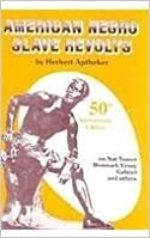
(This is the first fully documented study of Negro slave r...)
This is the first fully documented study of Negro slave revolts in The United States. Dr. Aptheker provides proof, obtained by painstaking research, that this content and rebelliousness were not only exceedingly common, but we're characteristic of American Negro slaves.
https://www.amazon.com/American-Negro-Revolts-Herbert-Aptheker/dp/0717806057/ref=sr_1_1?dchild=1&keywords=Herbert+Aptheker&qid=1593601360&s=books&sr=1-1
1983
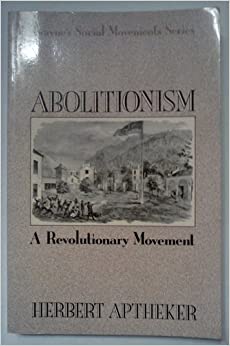
(Looks at the impact of the Abolitionist movement, describ...)
Looks at the impact of the Abolitionist movement, describes the roles Blacks played in gaining their own liberation, and discusses class consciousness.
https://www.amazon.com/Abolitionism-Revolutionary-Movement-Movements-Present/dp/0805797300/ref=sr_1_8?dchild=1&keywords=Herbert+Aptheker&qid=1593601360&s=books&sr=1-8
1989

(The three-volume Correspondence of W.E.B. Du Bois offers ...)
The three-volume Correspondence of W.E.B. Du Bois offers a unique perspective on Du Bois's experiences and views.
https://www.amazon.com/Correspondence-B-Bois-Vol-Selections/dp/1558491058/ref=sr_1_10?dchild=1&keywords=Herbert+Aptheker&qid=1593601360&s=books&sr=1-10
1997
Herbert Aptheker was born on July 31, 1915, in Brooklyn, New York, the United States to a wealthy Jewish family of Benjamin and Rebecca (Komar) Aptheker. He was the youngest of five children.
Herbert Aptheker attended Erasmus Hall high school and graduated from there in 1933. During that period he accompanied his father on a business-trip where became acquainted with the oppression of African-Americans in the South.
After high school, Herbert might have become a student of Columbia College. However, by bad chance, he went to study at Seth Low Junior College for two years. At long last, in 1935 Herbert managed to enroll at Columbia College. There he received a Bachelor of Science degree that was followed by the higher-status Bachelor of Arts in 1936, a Master's degree in 1937, and a Doctor of Philosophy in 1943.
Later, when Aptheker was already at a considerable age, he received another Doctor of Philosophy studying at Martin Luther University. In 1996, at the age of 81, Herbert Aptheker became Doctor of Humane Letters at the University of Massachusetts.
Herbert Aptheker was assigned to artillery duty during World War II, saw action in Europe, and rose to the rank of major. When he returned from the war he tried to get a job as a university instructor but was rejected by academia because in 1939 he had joined the Communist Party.
Because of those rejections, he entered the editing field, becoming an associate editor for Masses and Mainstream in 1948 and editor of Political Affairs in 1953. In 1964 he founded and became director of the American Institute for Marxist Studies in New York City.
Eventually, Aptheker’s experience and knowledge of African-American history led to his appointment in an academic post. He joined the history department at Bryn Mawr College in 1969, a time when students were beginning to demand more classes in multicultural studies.
During the 1970s he was a professor at Hostos Community College of the City University of New York, and from 1971 to 1972 he was also DuBois lecturer at the University of Massachusetts. Later Aptheker held various visiting professor jobs, including a long stint, from 1978 to 1991, at the University of California at Berkeley Law School.
Herbert Aptheker was a prolific author and editor. During his lifetime he published over three dozen works. Among the most significant ones: A Documentary History of the Negro People in the United States and Aptheker's editing of some forty volumes of letters, essays, a bibliography, and other writings by African-American intellectual leader DuBois. The results were highly praised by reviewers.
Herbert Aptheker has been listed as a noteworthy historian, lecturer by Marquis Who's Who.
(The Marxist historian traces the course of events from th...)
1976(Looks at the impact of the Abolitionist movement, describ...)
1989(This is the first fully documented study of Negro slave r...)
1983(This first volume presents material from 1861 until the c...)
1960(The three-volume Correspondence of W.E.B. Du Bois offers ...)
1997Herbert Aptheker was active politically. In the late thirties, he joined the Communist Party since he saw it as a means of attaining equal rights for all races, an issue he had been concerned about since visiting the South during the Great Depression.
However, his leftist leanings often led to trouble with the United States government. In 1951, for example, he was called before the House Committee on Un-American Activities, and during the Vietnam War, he almost had his passport revoked by the State Department for visiting Vietnam on a diplomatic mission with Yale professor Staughton Lynd and Students for a Democratic Society leader Tom Hayden. The controversy eventually led the United States Supreme Court to rule that it was unconstitutional for the federal government to revoke passports because of political affiliation.
In 1966 Herbert Aptheker was an Indiana Peace candidate for United States Congress. In 1976 he was a Communist Party candidate for United States Senate.
Along with his work on black history and the outspoken defense of civil rights, Herbert Aptheker was known as one of the first scholars to denounce American military involvement in Vietnam. He lectured on the issue on college campuses nationwide.
Quotations: "I studied history to attempt to solve a series of political problems. When I was an undergraduate, I chose history as a discipline that would allow me to look at social movements in the most holistic way... So I went to graduate school to study history not to be a history professor, but to be a professional Communist. That was my thing, and I was a member of the Communist Workers' Party."
Herbert Aptheker was an intellectual, polemicist, and agitator. As it is noted in the open sources, his ability to inspire both black and white student radicals made him one of the few Old Leftists accepted by the New Left. While serving in the CPUSA. Aptheker was convinced that true liberation could be achieved only through the party’s leadership.
Quotes from others about the person
Tony Pecinovsky is the president of the St. Louis Workers' Education Society (WES): "Herbert Aptheker was courageous, tireless fighting for African American equality and socialism. He was also very flawed, as we all are."
In 1942 Herbert Aptheker got married. With his wife Fay, they had one daughter Bettina who was born at the United States Army Hospital in Fort Bragg, North Carolina during Aptheker's service in World War II. Herbert and Fay were married for 62 years.
Fay was a union organizer and political activist.

Bettina is a professor of feminist studies and history at UC Santa Cruz. She is the author, most recently, of Intimate Politics: How I Grew up Red, Fought for Free Speech, and Became a Feminist Rebel.
